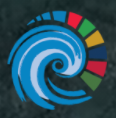In an effort to more effectively serve the water quality community, The Group on Earth Observations (GEO) AquaWatch Initiative is expanding through the formation of regional and thematic nodes. GEO AquaWatch invites government agencies, research institutions and NGOs to submit an expression of interest to host a node to the GEO AquaWatch Secretariat’s principal office.
Submission deadline: continuously open
About GEO AquaWatch
Water quality is essential for human, ecosystem, and economic health. Degradation of water quality can result in human exposure to disease and harmful chemicals, reduction in productivity and diversity of ecosystems and damage to aquaculture, agriculture and other water-related industries. The goal of the AquaWatch Initiative is to develop and build the global capacity and utility of Earth Observation-derived water quality data, products and information to support effective monitoring, management and decision making. AquaWatch encourages activities to engage, and be led by, early career scientists.
Formation of New AquaWatch Nodes
The GEO AquaWatch Secretariat provides scientific and logistical support, and program development for GEO AquaWatch activities. In order to effectively support coordination of relevant activities in other regions and to support global coordination and development of thematic activities, GEO AquaWatch invites government agencies, research institutions and NGOs to submit an expression of interest to host a regional or thematic node of the secretariat. Secretariat nodes can be regional, thematic or a combination of regional and thematic. Thematic nodes should generally align with one, or more, of AquaWatch’s focus areas: Outreach and End User Engagement; Observations and Data; Products and Information; Distribution, Access and Visualization; and Education/Capacity Building. Read the node responsibilities and requirements to become a regional or thematic node here. Any entities considering node hosting should be aligned with, and committed to implementing, GEO AquaWatch’s Diversity, Equity, and Inclusion policy.
Diversity, Equity, and Inclusion Statement
It is GEO AquaWatch’s goal to exceed legal mandates and be a role model of Equity and Inclusion in Water Quality Monitoring and more generally in STEM science. Especially, actively ensuring we are promoting the scientific findings and ideas of, and offering leadership roles and presentation opportunities to, all minority groups and women as the first objective in our planning, not as an afterthought or side effort. Diversity and inclusion are essential to Scientific Excellence and improves scientific outcomes.
Submitting an Expression of Interest
Expressions of interest responsive to the submission questions referenced here should be submitted via email to Steve Greb, Director of GEO AquaWatch at srgreb@geoaquawatch.org. If you have any questions about hosting a node Contact us!




